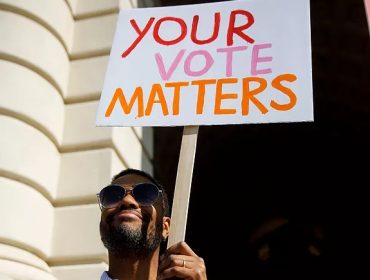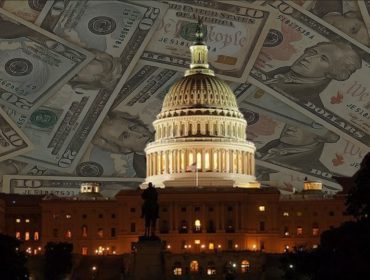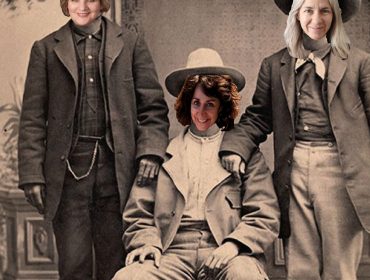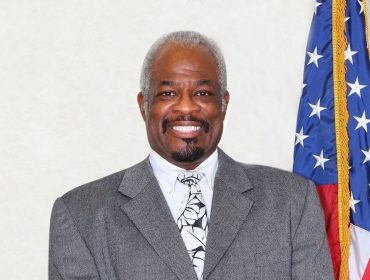
Today’s age circulates a popular joke: “How can you tell if a politician is lying? …His lips are moving.” This joke underscores the well-deserved perception of political figures. While many sectors of society demand honesty, our elected representatives seem to operate under a different set of rules.
Contrasting Standards of Honesty
Every day, ordinary citizens must adhere to honesty. Lying in a courtroom results in perjury charges. Deceiving the IRS or providing false information to banks brings severe repercussions. These consequences range from hefty fines to incarceration. Even inaccurately filling out an official form can land someone in jail.
Yet, venturing into the political arena seems to exempt individuals from the requirement of honesty, with dishonesty almost expected. Candidates, and even more, elected officials, enter a world where bending the truth often becomes part of the job. This stark contrast raises a simple but profound question: Why don’t we demand the same level of honesty from our leaders that we expect from ourselves?
The Corrosive Effects of Dishonesty
“A lie can travel halfway around the world while the truth is still putting on its shoes.” In politics, this phenomenon magnifies. Trusted figures perpetuating misinformation can erode public trust in the system. Leaders choosing falsehoods over truths expose themselves as charlatans, betraying the very citizens they promise to represent.
A thriving democracy relies on a well-informed public. The ability of the populace to make informed decisions, whether voting for representatives or understanding policy changes, remains paramount. Yet, muddied political waters filled with falsehoods challenge citizens in navigating and making informed choices, undermining the democratic process.
Honesty in Other Spheres
Note that other domains maintain stringent honesty regulations, holding professionals accountable. In the corporate world, for example, the Securities Exchange Commission’s Rule 10-b.5 mandates truthfulness, preventing shareholders from being misled. This rule penalizes false statements and holds professionals accountable for omitting material facts.
Imagine a political landscape adhering to similar standards. Politicians would need transparency about their intentions and affiliations, leading to an era where campaign promises are not just lip service but binding commitments.
Solutions and Recommendations
The complexities of political dishonesty notwithstanding, history shows that change is achievable with collective determination. Drawing inspiration from innovative ideas like mandatory truth-telling for election results, we can envision broader applications.
Politicians, like corporate executives, should face accountability for false statements and key omissions. An independent ethics commission could oversee these regulations, ensuring honesty through a non-partisan approach.
Substantial consequences for dishonesty should reinforce the importance of truth. Minor infractions could see deductions from campaign funds, while more significant deceptions might face penalties comparable to those in the banking sector, ensuring leaders remain accountable for their words and actions.
Reclaiming Truth in Politics
Honesty should form the cornerstone of trust in politics. In a realm where stakes are incredibly high, demanding honesty is not an option—it is a necessity. Aligning truthfulness standards in politics with those expected from the public can foster a genuine political climate, enabling decisions made in the true spirit of democracy.
A shift towards honesty won’t just enhance systemic integrity; it will rejuvenate public faith. In a complex world, truth should be the simplest expectation from our leaders.
Enacting Change through Model Legislation in Ohio
To address the issue of political dishonesty directly, model legislation providing civil liability for misleading or dishonest political conduct could mark a significant step forward. Ohioans seeking to advocate for this change can start by organizing community meetings to raise awareness, contacting state representatives to discuss the benefits of the legislation, and engaging with local media to spread the word.
Promoting this model legislation requires a grassroots approach: canvassing, social media campaigns, and partnerships with local organizations can amplify the call for transparency and accountability. By uniting behind this cause, Ohioans can pave the way for a new era of political integrity, setting a precedent that could inspire similar movements across the nation.
Let’s mobilize to ensure the passage of this crucial legislation, reinforcing the principle that honesty in politics is not just expected—it’s enforced.
Related News
End Gerrymandering: How to Make Your Voice Heard
Join Ohio's fight against gerrymandering with Citizens Not Politicians. Stand up for fair voting districts and ensure every voice is heard. Learn more and...
Tax Cuts Make You Pay More
Tax Cuts- Politicians have been cutting taxes for the past 50 years. Despite this, the majority of Americans have seen their taxes increase.
Berea’s Most Dangerous Moms
This opinion piece looks at why Berea Mayor Kleem is campaigning against three Berea moms who are running for city council. These moms...
The Memorial Day Parade is a Priority
Berea’s Memorial Day parade was canceled in 2020 and 2021 due to Covid. This year the parade was canceled but not other events- Why?
Rudeness at Berea’s Concert Series
Concert Series in Berea, Ohio hosted Brian La Blanc of the 1 Stop Pony Band. La Blanc was rude and abusive to a special...
Berea’s Leon Dozier- In Big Trouble With His Constituents
Leon Dozier was recalled by Ward 1. The recall election is this Tuesday, September 13 at Berea Recreation Center. Be sure to VOTE!





